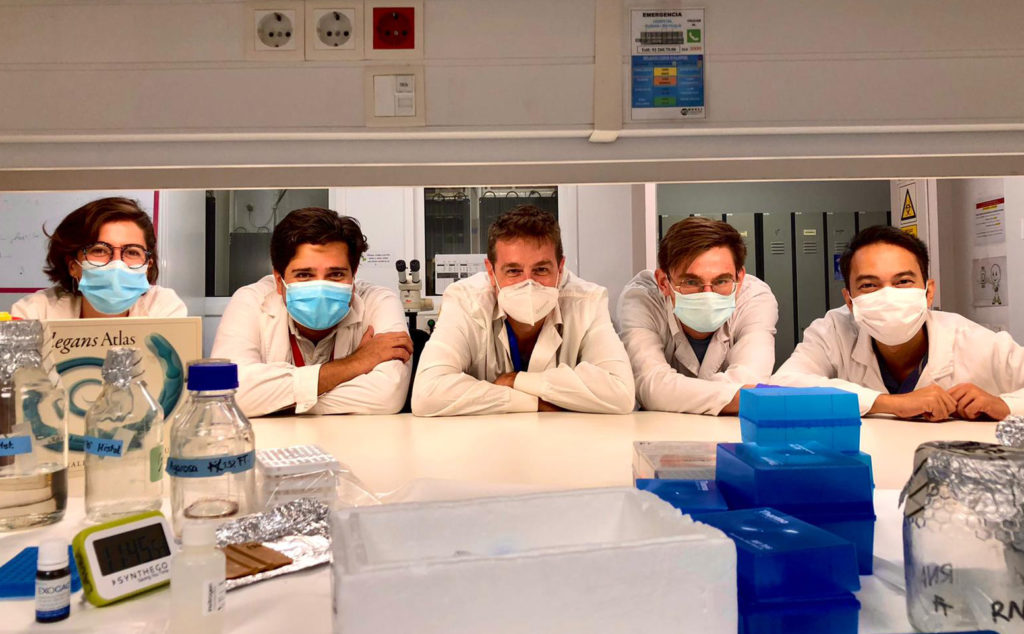The IDIBELL group led by Dr. Julián Cerón has received an “Ideas Semilla” grant from the Spanish Association Against Cancer (AECC). These grants are addressed at innovative projects that may generate solid lines of research. In this case, the resources will go for the creation of a new cancer model in C. elegans worms.
Genetic studies, which are currently implemented in cancer patients, have shown that cancer is a disease caused by the accumulation of multiple mutations that can be different in each patient. For this reason, personalized genomic medicine, in which the specific mutations of each patient are used to determine their treatment and follow-up, is becoming so important. Cerón’s project proposes to use the nematode C. elegans to introduce into its genome cancer mutations from patients. Thus, have a low-cost animal model to obtain functional information on these mutations and explore therapeutic possibilities by testing drugs in these avatar worms with patient mutations.
To date, it has not been possible to develop tumor-like structures in worms, however, Dr. Cerón’s group has extensive experience in the CRISPR gene edition technique that he will use to try to produce tumor cells in C. elegans through combinations of human cancer-related mutations.
Although a model of C. elegans seems to be very distant from humans, many of the genes mutated in cancer are conserved from one organism to another, in the same way, cellular processes involved in the development of cancer, such as apoptosis, are also highly conserved.

